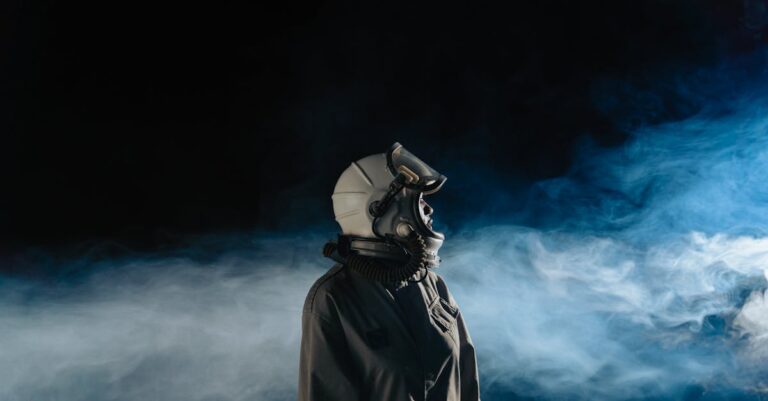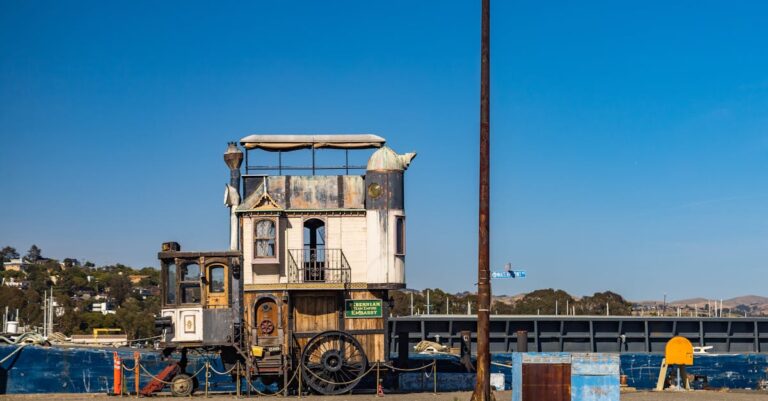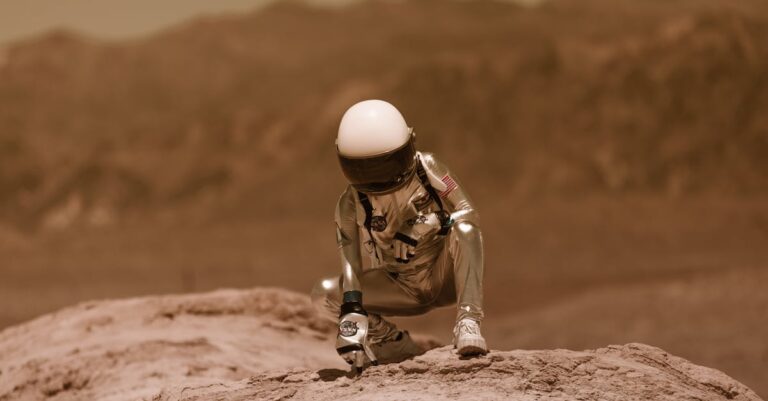Clara stepped off the creaking wagon, her boots sinking into the dust of Dust Creek. The town sprawled before her, a patchwork of sagging tents and ramshackle buildings, their wood bleached by sun and time. A bell clanged somewhere, distant but sharp, cutting through the dry air. She adjusted her coat, the fabric stiff with salt and sweat from the journey. The smell of pine smoke and horse dung hung heavy, mingling with the metallic tang of iron in the wind.
Silas stood at the edge of the square, his back to her, hands buried in the pockets of his frayed duster. He turned as she approached, his face a map of scars and weathered lines. “You’re not from around here,” he said, his voice a gravelly rumble.
“I’m here for the gold,” Clara replied, her tone steady. “Or what’s left of it.”
Silas snorted, but there was no mockery in it. He gestured toward the hills beyond the town. “The creek’s been dry for months. You’ll find more dust than paychecks.” His eyes flicked to her hands, calloused and rough, and he nodded. “You’re not a city girl.”
“I’ve dug ditches in Chicago,” she said. “This’ll be easier.”
He studied her a moment longer, then turned toward the main street. “Come on. I’ll show you where the tents go.”
The camp was a labyrinth of narrow paths, the air thick with the clatter of pans and the low murmur of voices. Women haggled over dried meat, their faces etched with exhaustion. Children darted between legs, their laughter sharp and quick. Clara’s gaze lingered on a man hunched over a table, his hands stained with dirt and something darker.
“That’s Eli,” Silas said, following her look. “He’s got a claim near the ridge. Doesn’t talk much.”
“He’s not the only one,” Clara muttered.
Silas didn’t respond. He led her to a tent flapping in the breeze, its canvas patched with scraps of cloth. Inside, the air was cool and damp, the scent of mildew and old wood. A woman sat by a fire, her back to them, stirring a pot.
“Maggie,” Silas said. “This is Clara. She’s here to work.”
The woman turned, her face lined but sharp-eyed. “Work?” she repeated, her tone edged. “You’re not a miner.”
“I’m not looking for a claim,” Clara said. “Just something to pay the rent.”
Maggie studied her, then nodded. “You’ll start at dawn.”
The next morning, Clara was already outside, her fingers numb as she shoveled dirt from the creek bed. The water was sluggish, its surface mottled with algae. She paused, wiping her brow on her sleeve, and looked up at the hills. A hawk circled overhead, its cry lost in the wind.
Silas appeared beside her, his boots crunching over gravel. “You’re stubborn,” he said. “That’s good.”
“And you’re a cynic,” she replied. “That’s not.”
He laughed, a low sound. “Maybe. But I’ve seen too many dreamers get buried in this place.”
Clara didn’t answer. She turned back to the work, her hands moving in rhythm with the shovel. The dirt was heavy, each scoop a battle against the earth.
Days passed in a blur of labor and silence. The town’s edges blurred into a routine: the clang of hammers, the smell of fried bacon, the way the sun beat down on the dust. Clara learned to read the cracks in the ground, the subtle shifts in the wind. She noticed how the creek’s flow slowed, how the rocks near the ridge seemed to glint faintly in the afternoon light.
One evening, as she walked back from the camp, she found Eli sitting on a rock, his back to her. He didn’t look up as she approached.
“You’re not here for the gold,” he said, his voice flat.
Clara hesitated. “I’m here for something else.”
Eli finally turned, his eyes dark and hollow. “Then you’ll leave when it’s gone.”
She didn’t know how to respond. Instead, she asked, “What’s out there?” She nodded toward the ridge.
Eli exhaled, a long, slow breath. “You don’t want to know.”
But Clara did. That night, she crept out of the tent, her boots silent on the ground. The moon hung low, casting silver light over the hills. She followed the path Silas had taken earlier, her pulse quickening with each step.
The ridge was colder than she expected, the air sharp with the scent of pine and stone. She reached a clearing, where the ground had been disturbed, and knelt to touch the soil. It was different here—richer, heavier. Her fingers brushed against something hard, and she dug carefully, revealing a glint of yellow.
Gold.
A shout split the silence. “What are you doing?”
Clara froze. Silas stood at the edge of the clearing, his face shadowed. “You shouldn’t be here,” he said.
“I found something,” she whispered.
Silas stepped closer, his expression unreadable. “That’s not yours to take.”
“It’s not yours either,” Clara shot back.
For a moment, they stood there, the weight of the discovery pressing between them. Then Silas turned, his voice quiet but firm. “Come with me.”
They walked back in silence, the gold still warm in her pocket. When they reached the camp, Silas led her to a tent she hadn’t noticed before, its entrance guarded by two men. He spoke briefly to them, and they stepped aside.
Inside, the air was thick with the scent of tobacco and old paper. A table sat in the center, covered in maps and notes. Silas pulled one aside, revealing a ledger filled with names and dates. “This mine’s been tapped before,” he said. “But the veins are still there. The problem is…” He hesitated. “The company’s coming. They’ll take it all.”
Clara stared at the paper, her mind racing. “Then we take it first.”
Silas looked at her, something like respect flickering in his eyes. “You’re brave. But this isn’t just about gold.”
“It’s about survival,” she said. “For all of us.”
The next day, Clara and Silas worked in secret, gathering tools and planning the excavation. The town buzzed with tension, the air thick with whispers. Eli disappeared, his claim abandoned. The company’s men arrived, their presence a cold weight over the camp.
On the night of the excavation, Clara stood at the edge of the clearing, her hands trembling. The mine was deep, its entrance hidden beneath layers of rock and earth. She heard Silas’s voice behind her. “You don’t have to do this.”
“I do,” she said. “For everyone.”
They worked through the night, the sound of picks against stone echoing in the dark. When they finally broke through, the gold gleamed like a promise. Clara felt a surge of triumph, but it was short-lived. The company’s men arrived, their boots crunching over the ground.
“This is our claim,” Silas shouted, his voice raw.
The confrontation was brief but fierce. The company’s men were armed, their leader a tall man with a scar across his cheek. “You’ve got no right to this,” he said. “This land belongs to the company.”
Clara stepped forward, her voice steady. “It belongs to the people who work it.”
The man sneered. “You think you can stop us?”
“We’ll try,” she said.
The fight was chaotic, a blur of movement and sound. Clara fought with the others, her hands bloodied but her resolve unshaken. When it was over, the company’s men had retreated, their leader cursing as he disappeared into the night.
The next morning, the town was quiet. The mine had been secured, its gold a lifeline for the struggling community. Clara stood at the edge of the clearing, watching as Silas and the others began to dig.
She felt a strange mix of pride and loss. The gold was there, but so were the scars of the fight. She thought of Eli, of the people who had left, of the ones who had stayed.
Silas approached, his face worn but determined. “We’ll need more hands,” he said. “But we’ve got a start.”
Clara nodded. “Then we’ll build it.”
As the sun rose over Dust Creek, the town began to stir, its people moving with a renewed sense of purpose. The gold was a promise, but it was also a reminder of the struggles they had faced. Clara knew the road ahead would be hard, but for the first time, she felt a glimmer of hope.
The end.


